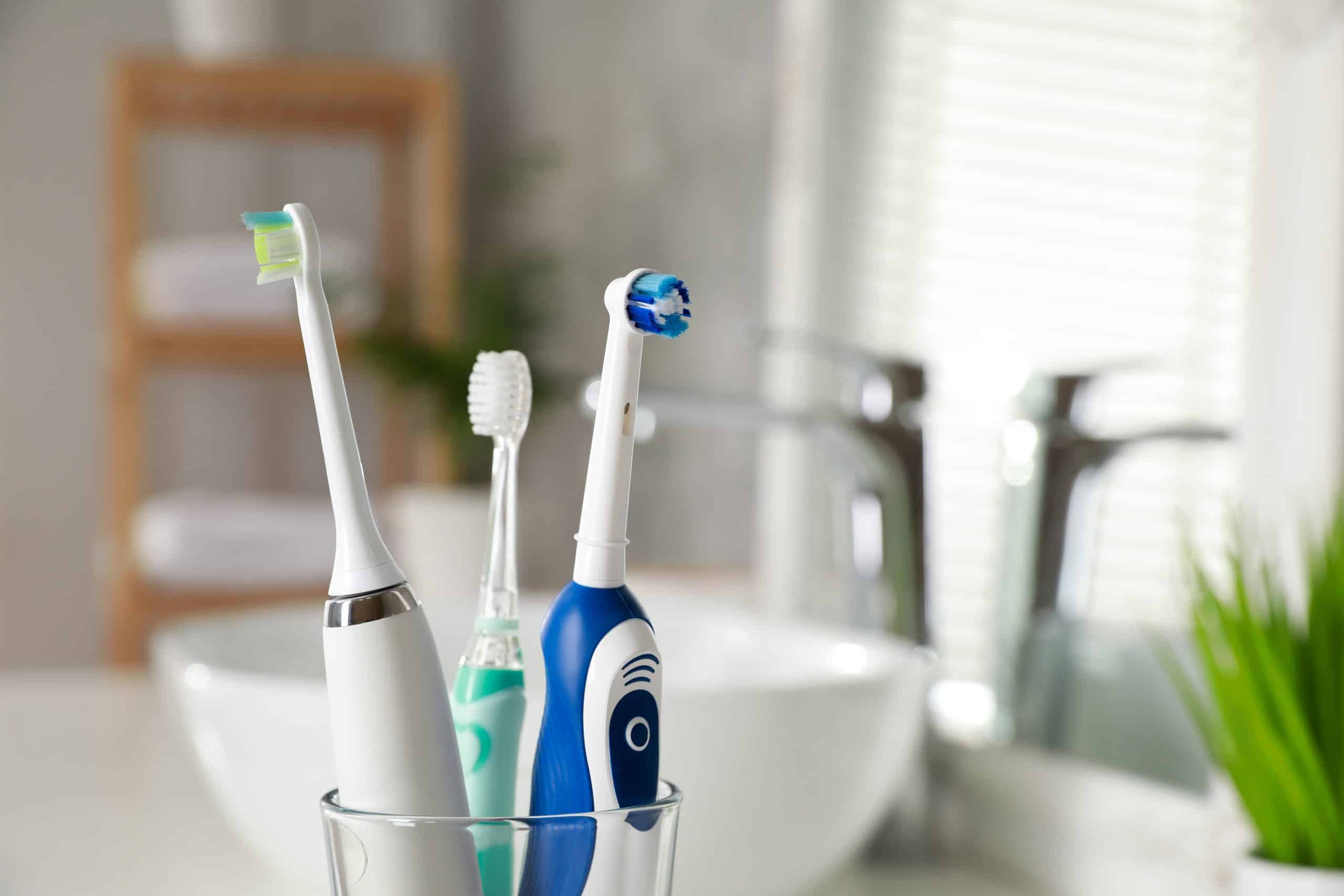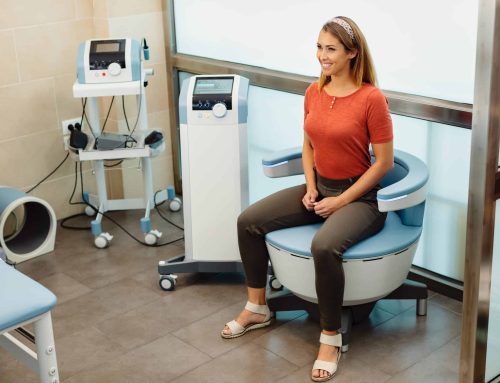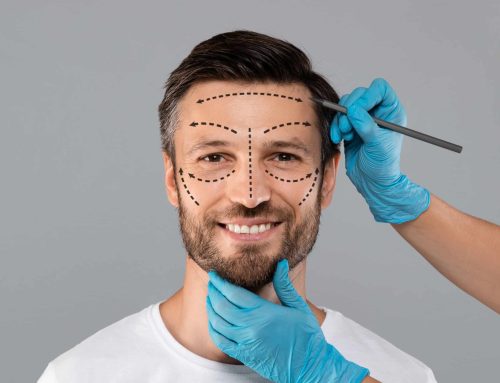Fighting Illness with Your Toothbrush
Something as simple as your toothbrush can ward off illness and maybe even death. Although this sounds pretty dramatic, Dr. Wade has first-hand knowledge about how powerful the connection is between the mouth and the rest of the body, especially the heart.
You may not associate tooth-brushing with your overall health, but something called the oral-systemic connection has great influence over your well-being. According to research, there are over 700 illnesses linked to the body and the mouth, both having dramatic effects on your health.
The Journal of American Medicine by Harvard has found that hospitalized people, particularly in the intensive care unit (ICU), were far less likely to develop hospital-acquired pneumonia if they had their teeth brushed twice daily. The study also revealed that seriously ill patients on ventilators needed them for less time, were able to leave ICU more quickly, and were less likely to die in the ICU than patients who did not undergo twice daily tooth-brushing.
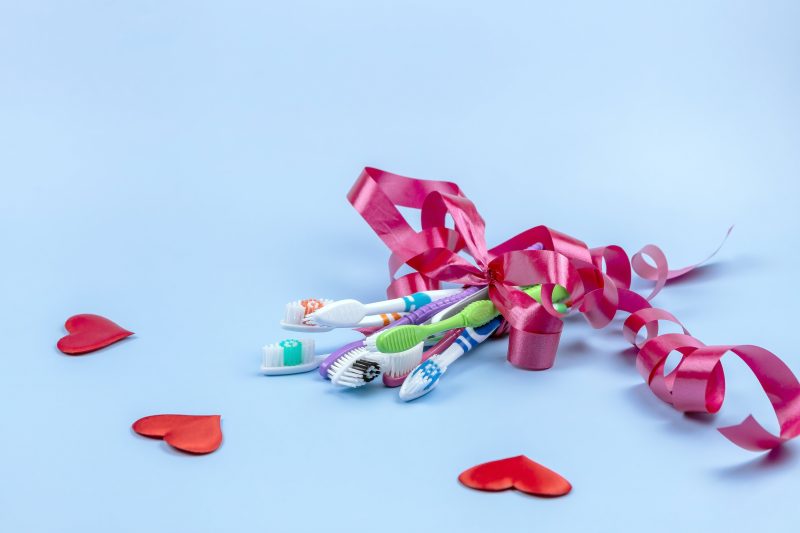
Based on this compelling information, health and beauty expert Laura Lewis-Edwards suggests bringing hospitalized loved ones a toothbrush and toothpaste versus flowers. “I know it sounds rather tongue-in-cheek, pun intended,” she acknowledges. “But this is serious stuff.” Laura follows this statement with some commonly known facts about the hospital environment, including the often weakened immune system of patients, the ease with which germs can spread via ventilation systems and surfaces, and even the hazards of shared rooms.
It’s hard to imagine that daily brushing can combat these portals to illness, but the evidence is so powerful that in some hospitals, this practice of brushing patients’ teeth—most especially for those who cannot do it for themselves—has been implemented as part of their care regimen.
How Does Brushing Ward Off Disease
You might be asking why, or even how, does tooth-brushing ward off disease. Well, brushing your teeth “removes the bacteria that can lead to so many bad outcomes,” explains Laura. Brushing also reduces the amount of plaque on your teeth, which is a sticky formation of multiple things, including debris, food, residual elements of drinks, and, of course bacteria. Dr. Jill Wade of Stonebriar Smile Design likens plaque to velcro, stating that “it keeps attracting more and more [debris]…and no matter what you do, until it gets brushed off, you’ll attract more ‘fuzzies.’” That film you feel on your teeth after a long day of eating and drinking, those are the “fuzzies,” a buildup of all the byproducts from everything you’ve consumed throughout the day.
Even if you rinse your mouth with bacteria-killing mouthwash, the only way to remove plaque and return your teeth to that clean, slippery-smooth feeling—called the pellicle—is through teeth-brushing or having your teeth professionally cleaned by your dentist. Doing this reduces plaque and its tacky properties, keeping the debris from “sticking” to your teeth.
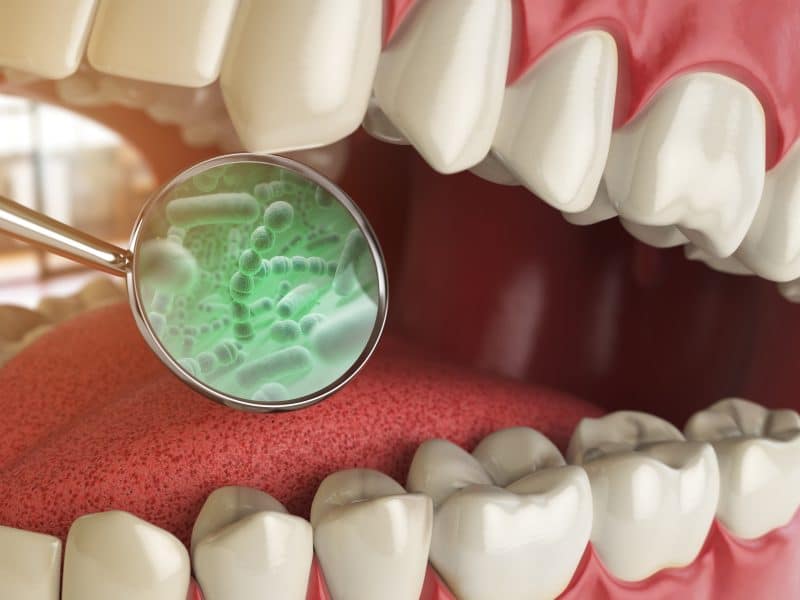
Dr. Wade goes on to explain that “if your mouth is too dry, it’s hard to form the slippery pellicle. And that’s why people who have drier mouths have much more susceptibility to all the bad things that go on in the mouth [such as] periodontal disease [and] cavities.”
As you would expect, hospitalized individuals may suffer from dry mouth. This is especially true in consideration to those in ICU, who may not be conscious or using equipment which keeps them from closing their mouths—effectively disrupting the naturally occurring moisture in the mouth. This allows “for bacteria to adhere even more readily,” says Dr. Wade. Therefore, keeping your mouth clean with tooth-brushing disrupts those colonies of bacteria.
Reducing the Risk of Hospital-Acquired Illness
According to the Agency for Healthcare Research and Quality, each year, more than 633,000 Americans who go to the hospital for other health issues contract pneumonia, and eight percent of those Americans die from pneumonia. Laura, who studied this case, states that researchers reviewed 15 randomized trials of 2,800 patients, comparing outcomes among the seriously ill hospitalized patients who had daily tooth-brushing to those who did not. She reveals that “study participants who were randomly assigned to receive twice daily tooth-brushing were 33 percent less likely to develop hospital-acquired pneumonia. And these effects were magnified for people on ventilators who needed this invasive breathing assistance for less time if their teeth were brushed. The study participants were 19 percent less likely to die in the ICU.”
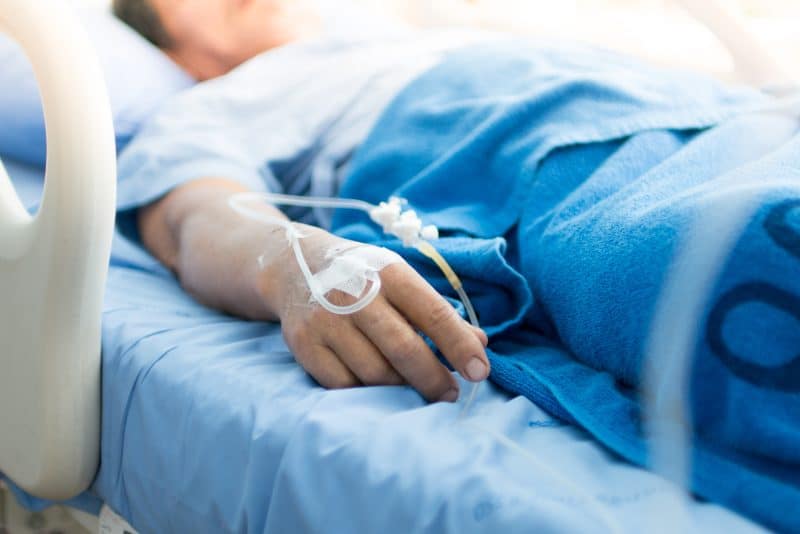
The study also provided another staggering statistic, stating that “pneumonia in hospitalized patients often stems from breathing germs into the mouth, germs with a number more than 700 different species, including bacteria, fungi, viruses, and other microbes.” The risk of infection could be even greater for ventilated patients since they are intubated, meaning they have a tube which has been passed through the mouth and directly into the airway, giving bacteria easy access to deeper parts of the body.
Dr. Wade uses a party analogy to describe what happens when you don’t regularly brush your teeth. She says that this invasion of bacteria is like an unauthorized party where unruly guests (bad bacteria) attend, and they keep bringing their equally unruly friends. The longer this goes on, the more destruction your teeth and gums undergo, leaving no room for “good bacteria,” that is until you brush your teeth. “Science shows that when you ‘disrupt’ the party…in good intervals, then your body will typically [get] rid of [illness-causing bacteria],” says Dr. Wade.
Bacteria Isn’t All Bad
Keep in mind that all bacteria isn’t bad. Sometimes called “the second brain,” your gut contains numerous strains (trillions) of “good bacteria” (think probiotics), strains that help heal your body and keep things running smoothly. However, all of them have the capability of penetrating your gastrointestinal system. While you might think that bacteria can’t survive the acid in your stomach, these crafty little “buggers” can cause infections just about anywhere, including the stomach—think leaky gut syndrome and acid reflux—intestines, and even the brain.
By traversing these barriers, bacteria can get directly into your bloodstream and cause widespread damage, and your mouth is a direct access point. There are even microbes that live in the mouth which could increase your risk of developing colon cancer. If you think of the pathway, you could see the correlation since everything that goes into your mouth eventually gets flushed from the body via the intestines. There are also bacterial infections of the mouth that could lead to heart disease.
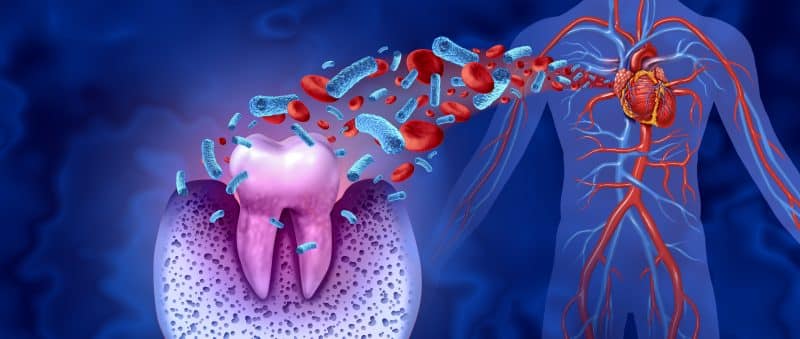
Now, that’s not to say you should try to rid your mouth of all bacteria—not that you could—but much of your health starts with your mouth. It all matters: what you eat, what you drink, and whatever gets absorbed into the lining of your mouth, which is teeming with blood vessels. The aim isn’t to be sterile but to increase the good, quality elements of your mouth and, ultimately, your body. Because your whole body system is connected, there’s no one part or system of the body that works independently of the other. For example, your oral microbiome regulates your stomach acid, and if things are “out of whack,” this unhealthy gut environment can cause an increase of plaque in the mouth due to symptoms of things like acid reflux.
Along with the tips you’ve heard before, like drinking lots of water, getting sufficient sleep, and eating a varied diet rich in fruit, vegetables, and whole grains, Dr. Wade encourages you to brush your teeth two or more times a day. If you’re brushing between meals, she suggests waiting at least 30 minutes after eating to brush as not to disrupt the acids in your mouth used to help break down food. Whether you use a standard toothbrush or an electric toothbrush, Dr. Wade attests that you won’t likely hear here say you’re brushing too much, because the research unequivocally proves, time and time again, that a healthy mouth, healthy gut, and healthy mind, leads to being healthy overall. So, no matter your “weapon” of choice, fight plaque buildup and harmful bacteria overload by brushing your teeth often and seeing your dentist for regular checkups to ensure your mouth is as healthy as it can be.
Click here to watch this episode of the Beyond Face Value Show on YouTube.
Visit us on YouTube to hear more about Stonebriar Smile Design and wellness dentistry, and be sure to comment, like, and subscribe.

